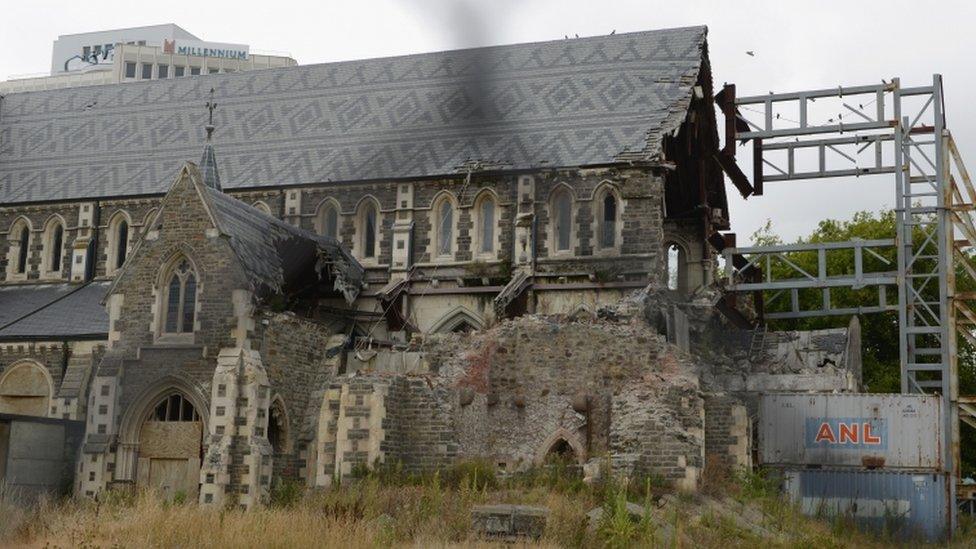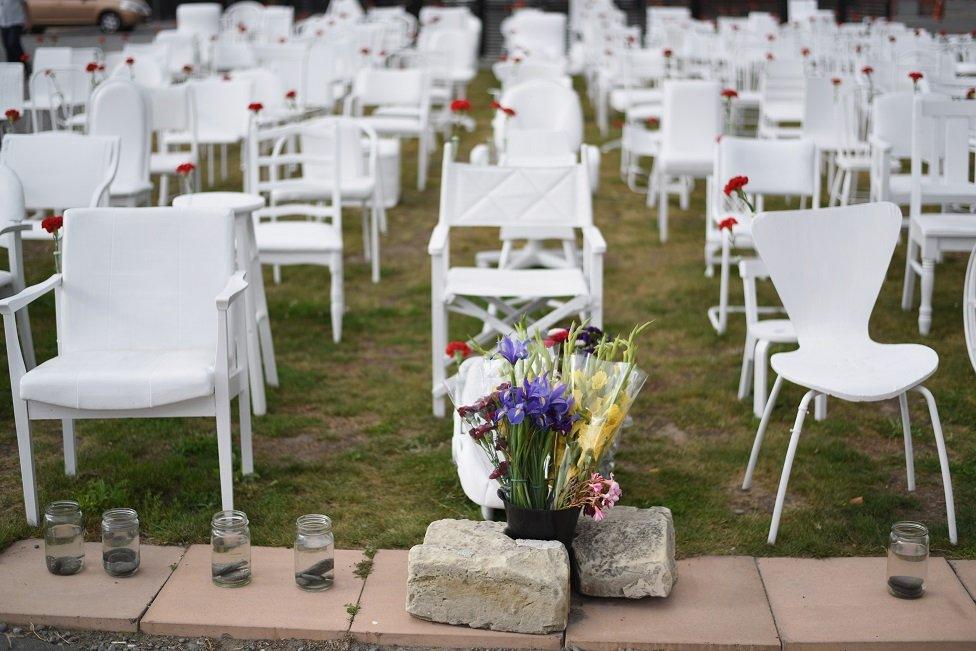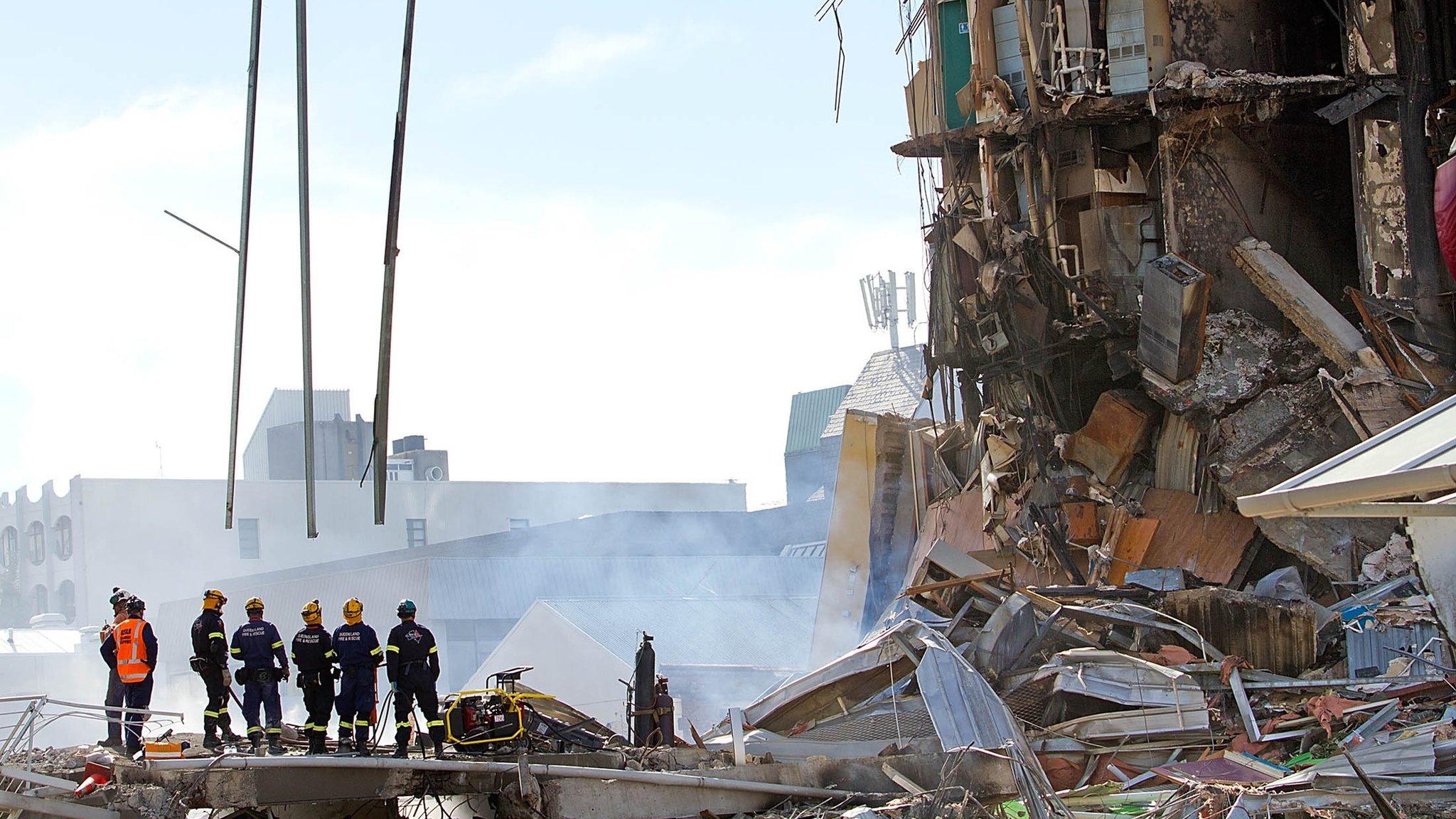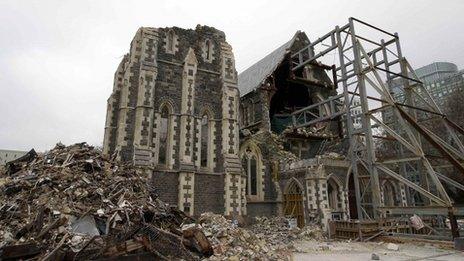New Zealand remembers victims of 2011 Christchurch earthquake
- Published
A public service remembers the victims of the 2011 quake
A public memorial service has been held in New Zealand to remember victims of a powerful earthquake that struck the city of Christchurch five years ago.
A total of 185 people died in what was considered to be the country's worst natural disaster in more than 80 years.
It left the centre of Christchurch in ruins, with thousands of homes destroyed.
The city is slowly being rebuilt, but many residents are still waiting for insurance claims to be settled.
Widespread damage
Governor General Sir Jerry Mateparae spoke at the public ceremony in Christchurch on Monday. Prime Minister John Key was also among the dignitaries taking part in the commemorations.
Christchurch earthquake: The battle to rebuild, five years on

Christchurch Cathedral remains damaged five years after the earthquake

An art installation featuring 185 empty chairs paid tribute to those killed in the 2011 earthquake in the Botanical Gardens in Christchurch
'This is for you'
After the service, a protester poured a brown substance from an ice cream container over the head of the minister overseeing the recovery, according to local reports.
Minister Gerry Brownlee told radio programme Newstalk ZB: , external"It was just a guy who just walked up at the end of the memorial service and said 'this is for you'."
He would not not speculate on what the substance was but said it "didn't smell too good".
Mr Brownlee and Mr Key were quickly whisked away by security.
Local media reported that Mr Brownlee had also been heckled earlier in the day while doing a live interview on television by a man saying "Gerry Brownlee you suck, you've done a bad job".

Mr Key and Mr Brownlee (right) were quickly whisked away by security after the incident
The magnitude 6.3 earthquake caused widespread damage on 22 February 2011 as it occurred at a shallow depth of 5km (3.1 miles) during lunchtime when Christchurch was at its busiest.
Almost two-thirds of those killed were inside the Canterbury Television building, which collapsed in the tremor.
It housed a language school, and the victims were of many different nationalities, reports the BBC's Phil Mercer.
Bereaved families from Japan flew to New Zealand for the fifth anniversary of the disaster, our correspondent says.
Each year more than 15,000 earthquakes are recorded in New Zealand, but only about 150 are large enough to be felt.
- Published10 December 2012

- Published2 March 2012
